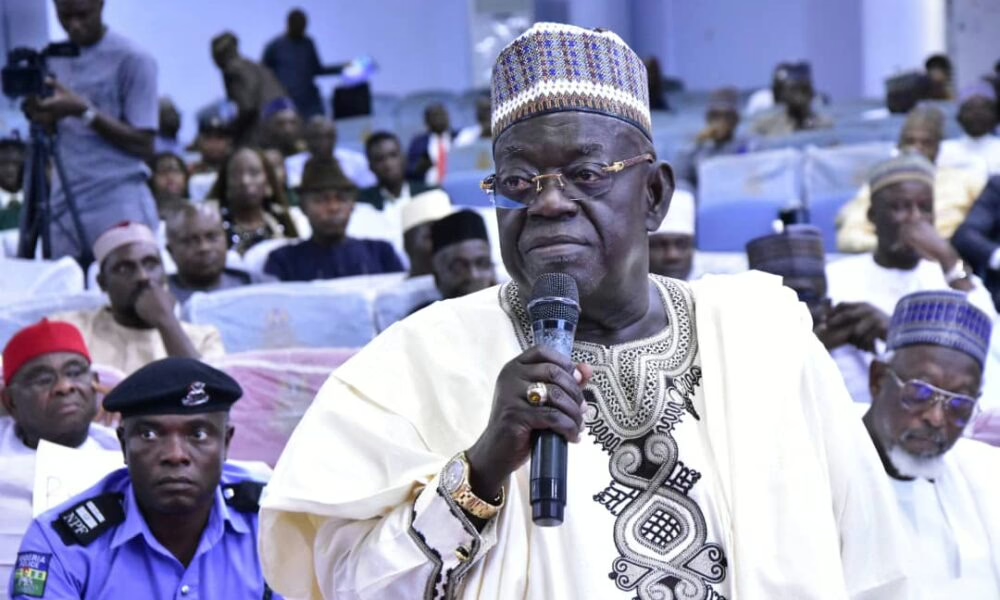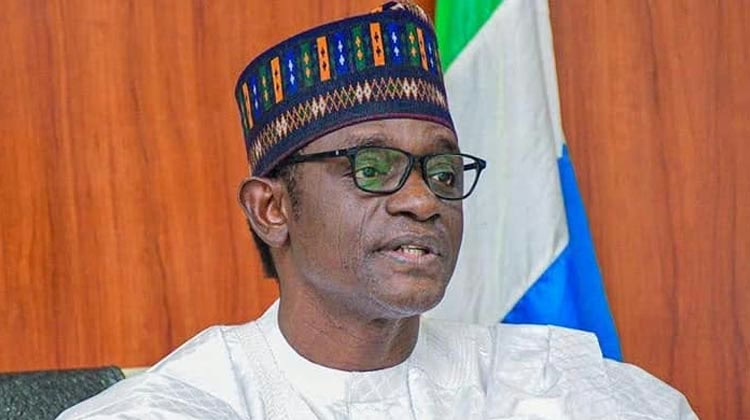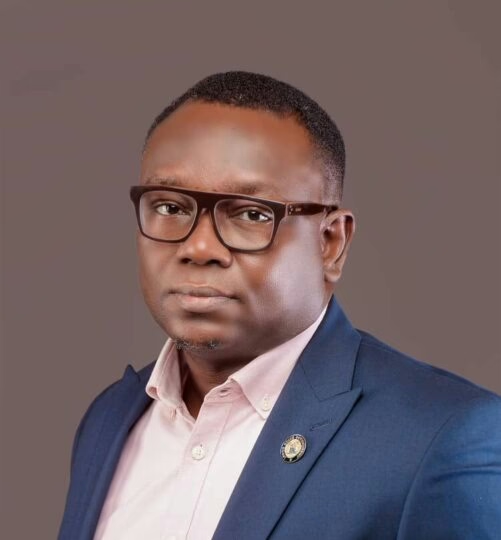From Romanus Ugwu, Abuja
Current events in the recent past across the country over handling of security threats in the states have continued to cast doubts on the long-held mantra in Nigeria that governors are the chief security officers in their states.
Perhaps, that perception was borne out of the impression that the governors collect humongous amounts of funds monthly as security votes which they sometimes deploy to support the security agencies.
However, the security challenges across the country, particularly the recent one in Abia where the governor, Alex Otti, almost helplessly watched the military and the indigenes turn the state into a killing battlefield, and in Zamfara State where the governor, Dauda Lawal, has continued to raise concerns over how powerful persons in authorities insensitively freed dreaded bandits kingpins, confirmed that the governors are actually toothless bulldogs.
A similar situation is playing out in Katsina where the governor, Dikko Umar Radda, has continued to spearhead over 70 years of agitations for State police, and in Kano State where the Emirates Council crisis is escalating insecurity out of the control of the sitting governor, Abba Yusuf.
In Plateau State, the rising inter-ethnic rivalry and farmers/headers clashes, intermittently grounding activities in the state, has portrayed Caleb Mutfwang as one of the governors apparently lacking the willpower and authority to curtail and arrest the development.
In retrospect too, the incident at Nimbo, in Uzo-Uwani Local Government Area (LGA), a community under the watch of the immediate past governor of Enugu State, Ifeanyi Ugwuany, who helplessly wept over the gruesome murder of his citizens by the allegedly rampaging Fulani herdsmen and the speculated refusal for him to access former president Muhammadu Buhari on his arrival at the Aso Rock Villa, Abuja, is another example portraying governors as weakening chief security officers.
There are several instances where the governors played the role of ceremonial figurehead security officers in their states in the present republic. One of it was the celebrated deadly rift between then governor of Rivers State, Chibuike Rotimi Amaechi, and former Commissioner of Police in the state, Mbu Joseph Mbu, popularly referred to as the lion that tamed the leopard in the build-up to the 2015 general elections during the administration of former president Goodluck Jonathan.
Recall that during the crossfire and war of attrition, Mbu had described himself as a lion, who tamed the ‘leopard of Port Harcourt’, referring to Amaechi, while the Rivers governor, however, tagged him as a “puppet who completely lacked the steel and strength of character of a lion, but rather a shameless, corrupt and toothless attack dog of a woman”.
He had said: “Indeed, it is very sad, and pathetic; however, ironic that Mbu called himself a lion. Which lion? This character Mbu Joseph Mbu completely lacked the courage, and strength of character of a man paid by taxpayers to protect, secure, and serve the interests of the people. When he was in Rivers State, he spurned the people, trampled on the masses, and became a partisan servant of one woman and her tool in causing disaffection, confusion, and crises. You are a disgrace and a shame to the Nigerian Police Force.”
In almost every state, there have been such caustic outbursts and endless cross swords between the governors and the heads of security agencies over who takes charge of ordering the deployment of security personnel to trouble spots.
It got that bad that then governor of Katsina, Aminu Masari, miffed by the endless conflicts between the gladiators, once described state governors as powerless chief security officers of their states, lamenting that security was the responsibility of the Nigeria government as stated by the 1999 Constitution.
Masari, in disappointment, had noted that; “In matters of security, a governor is the Chief Security Officer of his state only in name, because the various security chiefs working in the state take orders not from him, but from their superiors in Abuja. The only thing they take from governors is the financial and material assistance (both solicited and unsolicited), which they extend to the security institutions in the states.”
The then Katsina governor was not alone in the helpless situation as his counterpart in Enugu State, Ugwuanyi, was in tears when he visited his community after herdsmen reportedly killed 21 persons.
Helplessly relying on calls for prayers, declaring two days of fasting, and asking residents to commit the situation to God’s hand, Ugwuanyi resigned to faith when he could not get the desired positive response from the Federal Government to provide security to protect his people.
He said: “It calls for sober reflection; this is a trying period, not just for this community but for all of us. On Sunday, I got a call from the council chairman and immediately, I summoned a security council meeting. Before that, we had met with the Fulani leaders, and it was a day before that we would have inaugurated a joint committee of the Fulani and the Enugu government.
“Be that as it may, what has happened has happened; this is not the time to blame anybody; government will do what it is supposed to do. May I, therefore, call on the entire people of Enugu State to please fast for two days and put this into the hands of God; Enugu is in the hands of God.
“I reassure this community that the government and the people of Enugu State are behind them; their pain is our pain; they are the true heroes of democracy, and we cannot abandon them.”
To further confirm that the Nigeria constitution tied strongly the hands of state governors as it concerns security, more incidents of governors crying out for help from the Federal Government to provide security to protect their citizens have continued unabated most recently.
To many experts, the worst aspect of the constitution is that it makes the state governors ceremonial and artificial state security officers of their states, whose limitation could be seen in the fault of giving the police authority the whole opportunity to be the Alpha and Omega of security even when they are poorly paid and welfare not adequately taken care of.
From the past and recent complaints from Zamfara, Kano, Benue, Kaduna, Borno, Abia, Ondo, and several other states in the six geopolitical zones, the lapses visible in Nigeria’s security architecture are attributable to the loopholes in the constitution.
Only recently, Zamfara State governor had raised the alarm that the laid-back attitude of the police, the military, and the inability of the chief security officers to fully take control of security and combat banditry is plaguing the North-West state.
Recently, Zamfara governor accused powerful Nigerians of aiding the release of bandits that confessed to killing people after their arrest with weapons in the state and cried out that; “the uninspiring attitude of the Federal Government-controlled security agencies was responsible for the creation of our state security outfit, Community Protection Guards, in January.
“By name, I am the chief security officer of my state but when it comes to command and control, I don’t have powers over any of the security outfit whether military, police, or civil defence. They take their instructions from their superiors not from the governors. We don’t have that control, I wish we did have it, it would have been a different story.”
He further claimed that the security agencies had all it took to crush criminal elements across the country if there was no political interference, stressing: “There is so much political interference in this country. It is the major factor here. If we don’t have that, the military can crush anybody. We arrested the bandits, and they confessed that they killed people and had weapons in their hands. We handed them over to the authorities and they were taken to court. However, we received news that they were granted bail in Abuja.
“They have already freed them. There is assurance that if they bring them to court, they will be freed. If I don’t perform my role as governor, God will ask and be angry with me. We will arrest bandits and someone sitting in his house will order that they should be released. Who knows who the next victim of the banditry will be?”
Equally devastated by the rampaging forces of bandits destabilising activities in his state, Katsina, Governor, Radda, had recently admitted that he felt so unhappy that he could not help his people constantly facing attacks from the enemies of the state.
He suggested that apart from deploying junior police and military officers to their states of origin, it is also high time the federal government deployed sophisticated technology and other armaments to end the constant threat from the attackers.
“Sometimes, I feel that I should not be here while people are killed yet I can’t do anything. That formed the debate for the state police. Before I became governor, I was one of the harshest critics of state police, but I have seen the need for it and I have seen the efforts Katsina State Community Watch Corps is making toward tackling the insecurity.
“It was utmost courage and sincerity that informed my decision to call on the President to ensure that any police officer from the rank of the ASP below and any military officer at the junior level be posted to his state of origin. They will protect the lives of their people because they are their relatives, brothers, or sisters.
“If they like, let them allow people to kill them. The deployment will motivate people because they have everything at stake. I think the debate of the state police is apt now. We must address the issue of insecurity squarely.
“As a country, the government must deploy technology in the fight against insecurity. What stops us from having a coordinated joint operation and from being proactive instead of reactive? Why can’t we use drones, area surveillance, and trackers to defeat these people?
“Fighting insecurity requires some level of strength. When there are issues of lack of coordination, it makes it difficult to control the personnel. As a government, there should be a clear and supportive approach between the national and sub-national governments. If they want to address the governors, they call us the chief security officers of the state, but in reality, we are not because we don’t control. We must address this holistically to have peace and development,” Governor Radda argued.
Only recently, the Kano State government had expressed concern over the actions of the State Police Commissioner, Usaini Gumel, accusing him of disobeying the directives of the governor, particularly regarding the banning of Eid-el-Kabir festivities.
According to the State Attorney General and Commissioner for Justice, Haruna Isa Dederi; “I am compelled to address you once again on behalf of the governor and government of Kano State over the unfortunate activities of some enemies of the state that are hell-bent on causing breakdown of law and order in our state.
“How can anybody in his right senses ban Sallah festivities in Kano? And when did the State governor cease to be the Chief Security Officer of the state that he will only see such a ban on social media?”
They accused the Police Commissioner of consistently disobeying legitimate instructions and hiding under “orders from above.”
The duo of immediate past governors of Benue and Ondo States, Samuel Ortom and late Rotimi Akeredolu, almost served out their tenures complaining about their haplessness in batting the ceaseless attacks from killer herdsmen, attributing their inability to perform efficiently to the failure of the Federal Government to provide supports for them.
While issuing a seven-day ultimatum to Fulani herdsmen to vacate all Forest Reserves in the state where they keep victims of kidnapping, negotiate for ransoms and carry out other criminal activities, late Akeredolu, noted that the launch of Western Nigeria Security Network, popularly known as Amotekun would end the menace.
“These unfortunate incidents are traceable to the activities of some bad elements masquerading as herdsmen. These felons have turned our forest reserves into hideouts for keeping victims of kidnapping, negotiating for ransoms, and carrying out other criminal activities.
“As the Chief Law and Security Officer of the state, it is my constitutional obligation to do everything lawful to protect the lives and property of all residents of the state,” he noted in what later turned out to be an empty threat.
In all the states where insecurity has deteriorated, Borno, Yobe, Katsina, Benue, and Kaduna among others, the present and past governors seem to have deployed ineffective measures like floating of state militias, vigilantes, and regional security outfits, as antidotes and alternative measures to combat security with little or no success.
The security outfits, used as counter-forces, have sprung up in almost all the states with different identities like Ebubeagu in the South East, and Amotekun against the Fulani herders ravaging the South West.
Other notable state security outfits include Benue Guards and Operation Rainbow in Plateau in the North-central zone, Kano Hisbah, the civilian Joint Task Force in Borno State, and most recently and the Katsina State government’s Community Watch Corps.
The mayhem wreaked on hapless Nigerians with little or no protection from traditional security institutions out of the reach of the governors underscored their frustration and put to question the logicality of the Nigerian Constitution in making policing the exclusive of the Federal Government at the detriment of the governors.
However, on the flip side, there have been suggestions for the governors to deploy the state security outfits for active duty to help respond to domestic emergencies, such as riots and the incessant attacks from the bandits and related forces responsible for the security lapses in the states.
Throwing their weights to defuse the argument reducing the governors to mere ceremonial chief security officers of their states, the duo of legal luminaries, Messrs Olisa Agbakoba and Femi Falana, both Senior Advocates of Nigeria believe that Nigerian governors are not exercising their constitutional powers under the 1999 Constitution of the Federal Republic of Nigeria (as amended).
They advised the governors to take full advantage of their under-utilised powers by exercising their constitutional power to make inputs in the appointment of the Inspector General of Police (IGP), which they had till now abdicated to the President.
Falana also particularly argued that; “if an individual could apply for a licence to bear firearms for self-protection, there was no reason a governor should not apply for about 10,000 firearms licences for young men and women, to protect 20 million people.”
More curiously, despite the complaints from the governors, there has not been any deliberate effort to sponsor a bill to both chambers of the National Assembly to redress the apparently unproductive, skewed, hostile, and inauspicious security situation in the states.
“The governors making noise did not solve the problem of insecurity in their states in the past. If the governors want to show their seriousness, they have to explore legal and parliamentary options to deal with the situation. The Federal Government will not hand over the control of security enshrined in the exclusive list to the governors,” a party leader, who wants his identity protected, told Daily Sun.











